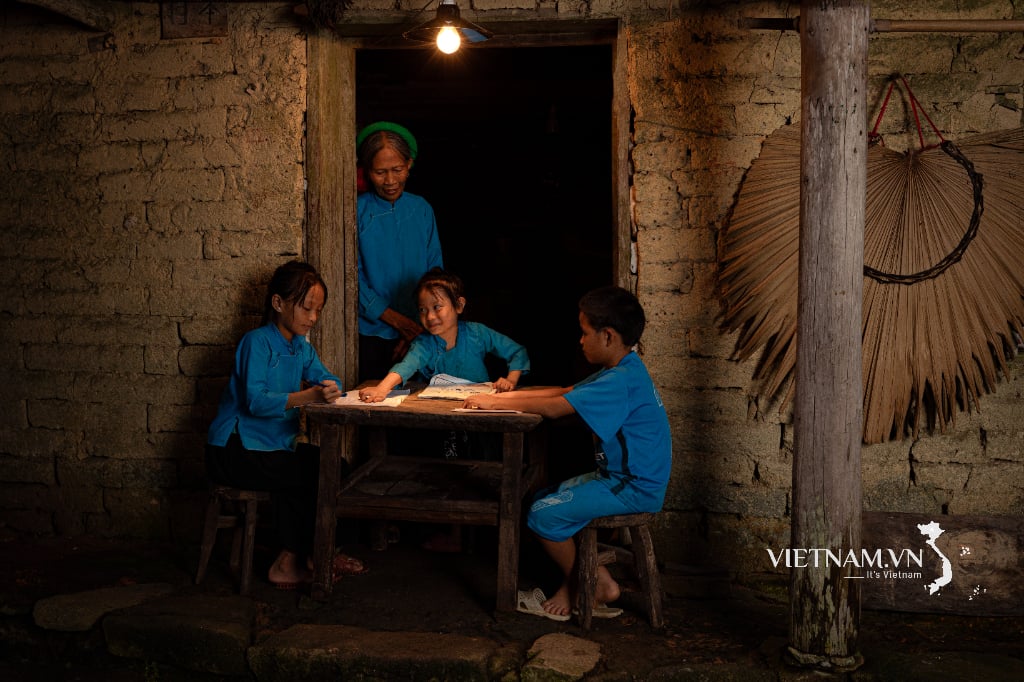This puts considerable pressure on the national power grid, while also raising concerns about the risk of overloading, fires, and a sudden surge in electricity bills.

Upon receiving his June 2025 electricity bill for nearly 5 million VND, Mr. Nguyen The Hung (Thien Loc commune) was astonished. "My family uses electricity for cooking, maintaining our fish tank, and lighting; especially on hot days, all four air conditioners run day and night at low temperatures. That could be the reason for the high electricity bill," Mr. Nguyen The Hung explained.
Similarly, the family of Mr. Ngo The Manh (Thanh Xuan ward) has only four people, with both him and his wife working all day, yet their electricity bill for June reached 4.8 million VND. Mr. Manh investigated and learned that, in addition to cooking and watching TV, his children also use the air conditioners in two rooms day and night, sometimes even leaving them on when they go out.
"I have asked every member of my family to change their electricity usage habits, to save energy, and only use cooling devices when absolutely necessary," Mr. Manh said.
According to the Hanoi Electricity Corporation (EVNHANOI), in the first seven months of 2025, the average daily electricity consumption in the city was 90,289,082 kWh, an increase of approximately 3.82% compared to the same period last year. Notably, in just the first four days of August, electricity consumption increased by 1,300 MW (an increase of approximately 27%), indicating that electricity demand shows no signs of slowing down. This sudden surge in consumption not only affects the electricity supply system but also causes anxiety among many households as their electricity bills skyrocket.
During extreme heat, air conditioners, fans, refrigerators, etc., are indispensable appliances. However, indiscriminate use, running multiple high-power devices simultaneously, not turning them off when not in use, or setting air conditioner temperatures too low are typical examples of electricity waste. Furthermore, many households have a habit of turning on all electrical appliances at the same time, especially during peak hours (11:00 AM - 3:30 PM and 8:00 PM - 11:30 PM), leading to localized overload and posing a risk of electrical hazards and fires. Meanwhile, according to the Berkeley Research Institute (USA), unused electrical appliances that remain plugged in consume 5-10% of each household's electricity consumption.
Faced with the pressure of continuously increasing electricity consumption, EVNHANOI has issued a series of practical recommendations to customers such as turning off unnecessary electrical appliances; limiting the use of high-power electrical appliances during peak hours; choosing energy-saving labeled appliances; unplugging appliances when not in use; and utilizing natural light and ventilation to reduce the use of air conditioners and lighting. In addition, the Corporation also encourages people to install the EVNHANOI application to proactively monitor their electricity consumption and use the "estimate electricity consumption" function to choose suitable appliances.
Electricity is a unique form of energy that cannot be stored on a large scale and must always be produced according to consumption needs. Therefore, every action to save electricity not only helps reduce household bills but also contributes to maintaining the stability of the national power grid. Saving electricity is also a way to protect the environment. Reducing electricity consumption means reducing greenhouse gas emissions from thermal power plants – a cause of air pollution and climate change. The habit of saving electricity needs to start with each individual, each family, and spread into a civilized and responsible lifestyle. When the community acts together, the change will become stronger and more sustainable than ever before.
Combating electricity waste is not just a temporary solution during scorching hot days, but should become a civilized behavior, demonstrating community responsibility. Because every kilowatt of electricity saved today is a practical contribution to a stable energy future, environmental safety, and sustainable development of the country.
Source: https://hanoimoi.vn/dien-quy-dung-lang-phi-711835.html



![[Image] The 14th Party Congress implements the content on personnel work.](/_next/image?url=https%3A%2F%2Fvphoto.vietnam.vn%2Fthumb%2F1200x675%2Fvietnam%2Fresource%2FIMAGE%2F2026%2F01%2F22%2F1769088146286_ndo_br_1-6165-jpg.webp&w=3840&q=75)


![[Photo] Voting for the 14th Central Committee of the Communist Party](/_next/image?url=https%3A%2F%2Fvphoto.vietnam.vn%2Fthumb%2F1200x675%2Fvietnam%2Fresource%2FIMAGE%2F2026%2F01%2F22%2F1769082445591_chi-9961-jpg.webp&w=3840&q=75)





































































































Comment (0)